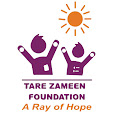Vitamins are the nutrients in your body that needs to function and fight off the disease. Your body alone isn’t capable of producing vitamins by itself but dependent on food and in some cases supplements. There are 13 types of vitamins that are responsible for perfect working of your body. Vitamins are used in various ways inside the body. While they are not a direct source of energy, they help the enzymes to generate required nutrients.
Vitamin D is an essential type of a nutrient in the body required to maintain healthy bones and teeth. It is also referred as the “Sunshine Vitamin” produced by the endogenous exposure of skin to sunlight (UVB radiation). The sunlight absorption stimulates intestinal calcium absorption and promotes bone growth. You get vitamin D from food items such as fish, eggs, and meat but most of the vitamins are absorbed in the body through sunlight exposure.
Vitamin D deficiency is associated with increased risk of common cancers, autoimmune diseases, infectious diseases and hypertension. Vitamin D deficiency occurs due to various reasons. These include,
- Staying indoors or less exposure to sunlight
- Low intake or inability to absorb Vitamin D from foods
- Dark skin
- Obesity
- Use of specific medications
- Old age
As a result of such deficiency, a person may develop several signs and symptoms. Insufficiency of vitamin D leads to weak and brittle bones that are more prone to fracture. Many of the signs and symptoms are unknown or go unnoticed. Major signs and symptoms of this deficiency include,
- Pain in the bones and muscles
- Insomnia
- Headache, weakness and hair loss
- Increased lethargy and fatigue
The deficiency of Vitamin D is generally determined through blood tests. The test cost ranges from Rs. 210 – Rs.4,100 at most of the Diagnostic centers in India. Anything under 20 nanograms per ml is considered inadequate and calls for the right treatment.
The treatment for the deficit involves more exposure to vitamin D through diet, sunlight, and medications. The best treatment option is to take vitamin D supplements as they are safe and generally inexpensive. The natural source of dietary supplements include,
Variety of fruits, vegetables, whole grains, low-fat or fat free milk and milk products, oils etc.
- Fatty fish and fish liver oil
- Egg yolk
- Exposure to sufficient sunlight as recommended
While vitamin D is very essential for a person, excessive intake could lead to over calcification of bones and hardening of blood vessels, kidney, and lung and heart tissues
Too much Vitamin D can lead to:
- Appetite loss
- Headache
- Vomiting
- Dry mouth
- Loose stools
- Constipation
A novel coronavirus disease 2019 (COVID-19) outbreak is a global dramatic pandemic that is immeasurably impacting our communities. Vitamin D is associated with its anti-inflammatory and antioxidant actions. Patients with common variable immunodeficiency as well as older adults, who are detected with mild to severe vitamin D deficiency, constitute high risk groups for getting severe illness from COVID-19.Given the high prevalence of vitamin D deficiency and in order to rapidly, safely, and significantly raise serum concentrations, high-dose vitamin D intervention with potential benefit in decreasing risk of COVID-19 severity and mortality is suggested, which is a safe and noninvasive treatment.
Finally, as a precautionary measure, always maintain a balanced exposure to sunlight. Eat foods rich in vitamin D & calcium and speak to your doctor if you feel you are at risk of low Vitamin D.
STAY SAFE, STAY HEALTHY!






1 Comments
Free Treatment in India
ReplyDelete